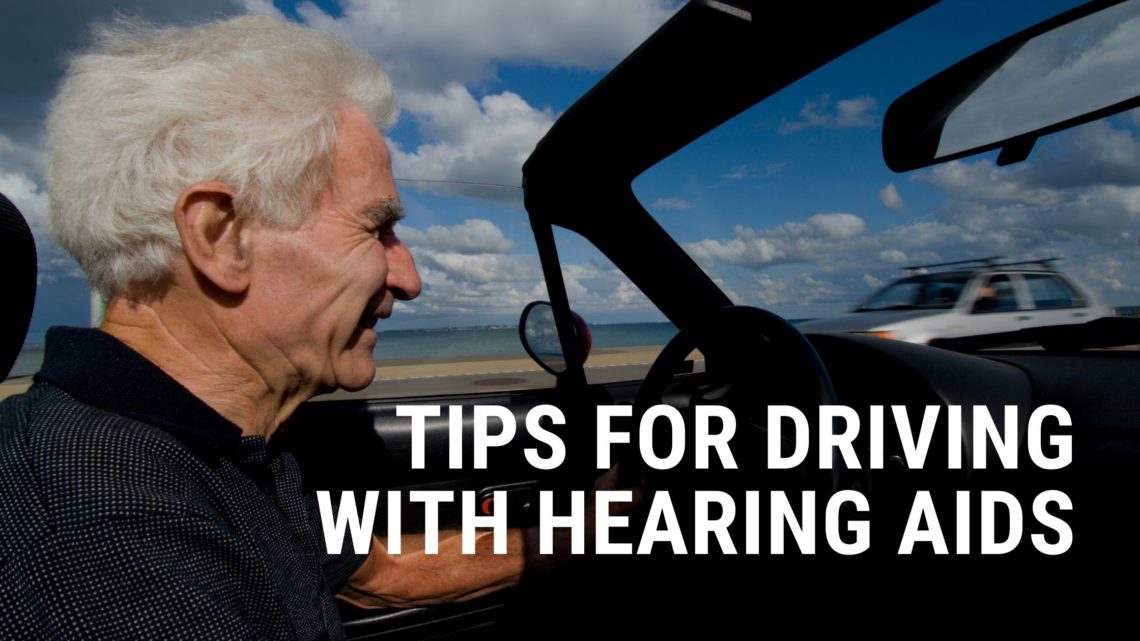Dealing with hearing loss as you age is incredibly common – about 20% of the U.S. population has some degree of hearing impairment. That number jumps to 35% for people over age 65. For people aged 75 and older, 50% experience some degree of hearing loss.
Fortunately, hearing aid technology can help seniors adapt to the challenges of hearing loss and stay engaged in the activities that matter most to their lifestyle and independence.
If you’re coping with hearing loss, be sure to be prepared for a few extra challenges when you get behind the wheel. Here are a few tips for safer driving.
Keep your eyes and ears on the road.
A huge part of safe, responsible driving is keeping your distractions to a minimum. When your hearing is compromised, you’ll need to be extra alert while operating a vehicle – the consequences of distracted driving can be dangerous!
Don’t play music or the radio- if your hearing is challenged, you need to keep your ears tuned for traffic cues like sirens or horns. Just as important, don’t make distractions for yourself like trying to eat food on the go or trying to fish for an item in your back seat.
Distractions split your attention or take it off the road entirely, opening up your driving to more mistakes and accidents.
Keep the windows closed.
Moving fast down a highway creates a lot of wind noise, and when you open your windows on the road, the sound of air rushing through can be loud, distracting, and confusing. Often, loud wind drafts are difficult for hearing aids to process. Opt for using in-car temperature controls, especially when driving at faster speeds.
Good vision is crucial.
Sight is by far the sense you use most constantly while driving. If you face hearing challenges, vision’s central role is doubly reinforced, so it’s essential to make sure you get your eyes checked regularly.
Even people who’ve had 20/20 vision their whole lives may encounter vision issues that creep up with age. For seniors, it’s wise to get your vision checked every year or two and monitor any problems as they develop. If you have glasses or contacts, be sure to wear them while you’re operating your car so your eyes can catch what your ears may not be able to.
Use Your Hearing Aids
If you have hearing aids, be sure to have them in and on while driving. Some of the most urgent cues we receive from traffic are auditory, like the siren of a fire truck or the honk of a car in your blind spot.
If your hearing device is new to you, start by taking short, familiar trips so you can learn how things will sound while you drive. Suppose the mechanical sound of your car or the noise of traffic seems unbalanced. In that case, you talk to your hearing specialist about possible adjustments or presets to your device.
Use the latest technology available to you.
The latest hearing aids often come with streaming capabilities for smartphones, tablets, and other digital devices. This opens up a wealth of options for drivers with hearing challenges.
Using navigation apps like Google Maps, you can chart a course to your destination and have spoken directions stream to your hearing device as you drive.
Be sure to set your directions while your vehicle is parked; you should never try to type or adjust something on a phone while driving. It’s also a great idea to keep your phone plugged into a charger while you use the directions – long trips can quickly drain your phone’s battery.
Keep your car in good shape.
Hearing loss can prevent you from detecting the warning sounds of car trouble and tire damage. Rattling from your engine or odd noises in the muffler has a higher chance of going unnoticed if you drive with hearing loss, especially if you drive alone.
Look at your car’s driver manual, consult your mechanic to get a suggested maintenance schedule, and stick to it. Pay extra attention to dashboard alerts when you drive and if anything comes on, have it checked out quickly. Keeping your car in good shape with tune-ups and maintenance is excellent advice for any driver to stay safe on the road. It can help guard you against vehicle problems that have auditory symptoms you may not catch.

